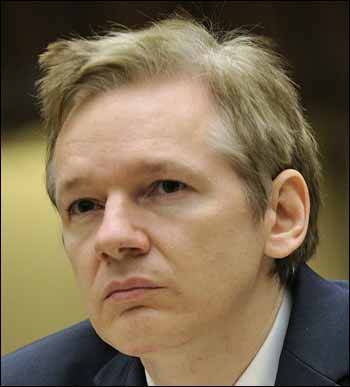The CIA launches a special group to assess the impact on the United States of leaks 'WikiLeaks' ('The Washington Post', USA)
 A task force has been set up at the CIA to assess the impact of the publications of thousands of American diplomatic correspondence documents and WikiLeaks military files.
A task force has been set up at the CIA to assess the impact of the publications of thousands of American diplomatic correspondence documents and WikiLeaks military files.The group is officially called the “WikiLeaks Task Force.” But at the headquarters of the CIA, she is known, first of all, for her not very convenient abbreviation WTF *.
The irreverence is perhaps understandable for an agency that has hardly suffered any losses from WikiLeaks. Only a handful of CIA files have surfaced on the WikiLeaks site, and documents from other departments posted on the network have surprisingly little information about CIA employees or their operations.
Despite this, the CIA stated that the agency checks an extensive list of classified information, which usually spreads through a dozen or more networks connecting agency employees around the world.
And the target group is focused on assessing the direct impact of the newest files. One of the agency's problems is the ability to attract informants - it can be detrimental to the decline in confidence in the ability of the US government to keep secrets.
“The director asked the task force to assess whether the latest publication of documents on WikiLeaks could affect relations with foreign agencies or operations,” said a CIA spokesman, George Little. WTF currently heads the CIA's counterintelligence center, but the group includes more than two dozen staff from other departments of the agency.
Some of the agency’s veterans said that WikiLeaks justified the CIA’s long-standing reluctance to share secrets with other government agencies. This position came under fire, after being named a factor that prevented the country from preventing 11 attacks in September 2001 of the year.
Even with the transfer of some additional information over the past decade, the agency “did not capitulate to this practice - to make everything accessible to outsiders,” said a former senior CIA official, who recently retired. - They did not even discover all that is available to insiders. And, by and large, the system works. ”
A CIA veteran said that most international agencies use the classification of "secret" for records of the level that appeared on the Internet. But the agency has always insisted on using its own systems.
As recently as two years ago, the agency rejected a request to make its reports more accessible through SIPRNET, the secret networks that the Pentagon uses to transmit information around the world.
“We just said that we are not going to do this,” commented another former CIA official. “We came to the general opinion that there would be too many people potentially having access.”
Former officials spoke on condition of anonymity, since they are not authorized to discuss security measures at the agency.
Among people with low access to SIPRNET, was a US Army intelligence analyst, Bradley E. Manning, who was accused of revealing classified information and suspected of using simple flash drives to steal files that were sent by WikiLeaks.
The CIA had its computer scandals. Former CIA director John Deutch was suspended access to classified information at the end of 1990's after accusing him of keeping sensitive information on his home computer.
Officials said the agency also finds it difficult to track the internal laptops from which information is sent overseas, as well as in the exchange of confidential information with the thousands of contractors hired by the CIA. Their number has grown over the last 10 years.
The agency uses software measures to minimize the risks of leakage, similar to WikiLeaks. Agency systems send alerts to administrators when a large amount of data is being loaded. Most CIA computers are not equipped with devices that allow the use of a removable disk.
When asked what would happen if an employee inserts a flash drive into a computer on his desk, the former high-ranking CIA officer joked: "The hatch under the chair will probably open."
Despite this, CIA security experts have been arguing for years about the consequences of moving sensitive information from paper to digital files that can be distributed on the Internet.
“This is just a huge vulnerability,” said a former senior CIA official. “No one could pull out so much paper to do what WikiLeaks did.”
* WTF (English “what the fuck?”) - approximate meaning: “what the hell?”, “What the hell is this?”. There are more rude translation options - approx. per.
Information